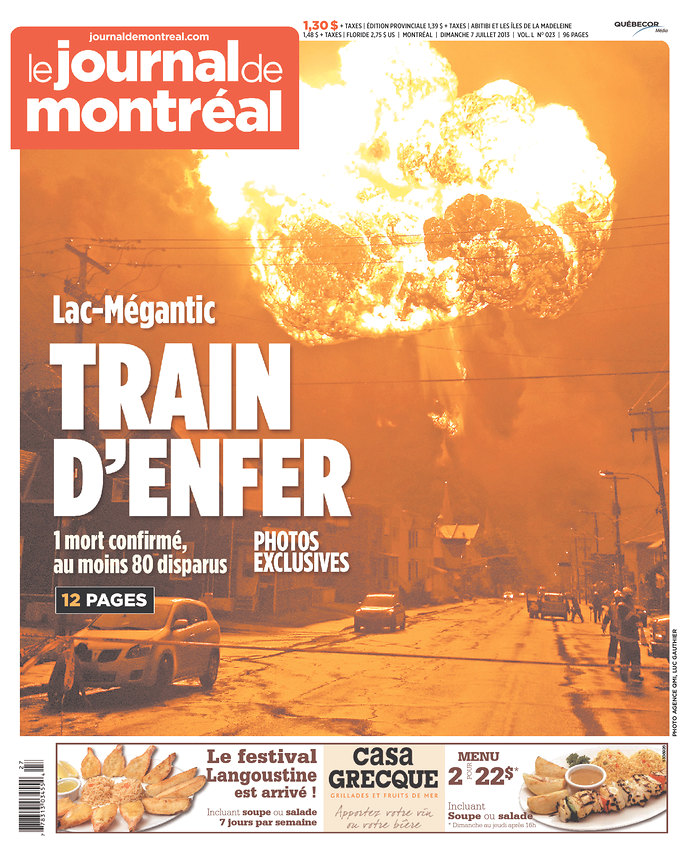Five years ago today, we learned of the tragedy that had struck the Quebec town of Lac-Mégantic in the small hours of the morning:
Updates as they came in: initial post, locomotive fire, media access, still questions more than a week later, first anniversary, and the Transportation Safety Board report.
Earlier this week, Asad Iqbal reported from Lac-Mégantic:
Rail safety advocates say that five years after the Lac-Mégantic train derailment, not enough has been done to prevent similar tragedies from happening elsewhere in Canada.
On July 6, 2013, 47 people died when a train loaded with 7.7 million litres of fuel rolled unmanned into the downtown core and exploded in the middle of the night.
Commemorative events honouring the victims will take place throughout the day on Friday.
Meanwhile a citizens’ committee for rail safety and surveillance will mark the disaster by heading north to the neighbouring town of Nantes, where the train started rolling down the steep hill toward Lac-Mégantic in 2013.
“Five years after the tragedy we have not seen a significant improvement of rail safety measures,” said Robert Bellefleur, a spokesperson for the Coalition des citoyens et organismes engagés pour la sécurité ferroviaire.
The federal and provincial governments announced in May a bypass would be built around the town of Lac-Mégantic, Que. (Julia Page/CBC)
Tanker cars carrying dangerous goods are regularly parked at the top of this steep hill above the town, Bellefleur said, a disturbing image for people who drive past.
“The main risk factor that contributed to the tragedy is not even solved,” said Bellefleur.




